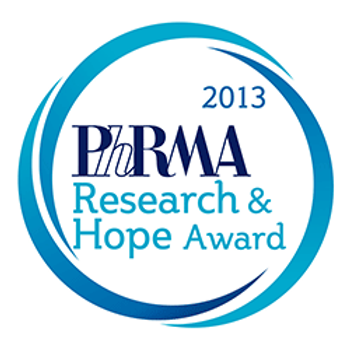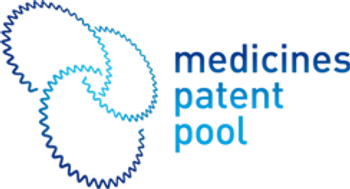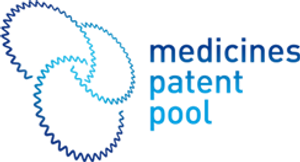
Yesterday, the Supreme Court heard arguments on the matter of pay-for-delay settlements between patent holders and generic firms.

Yesterday, the Supreme Court heard arguments on the matter of pay-for-delay settlements between patent holders and generic firms.

At a time when burst bubbles have created uncertainty for investors in the biomedical realm, it’s smart for a drug company to make use of new legislation and emerging trends in venture capital. This is particularly true in spurring confidence in that translational area of drug development many deem the “Valley of Death”.

At last week’s Partnering for Cures conference held in New York City, several expert panels discussed new angles of approaching solutions to disease, encouraging investment and mitigating inefficiencies in the delivery of medicines within the current healthcare system.

In health care, it is the lowly consumer who is now calling the shots, driving product and process innovation in areas ranging from electronic medical records [EMR] to retail health clinics.

An increasing number of small biotech companies are being hatched to focus on a single disease or condition. PharmExec talks to the CEO of one such company, Eugene Williams of Dart Therapeutics.

An increasing number of small biotech companies are being hatched to focus on a single disease or condition. The strategy goes against the diversified portfolio approach most big pharma companies have embraced, and instead puts all the eggs in one basket.

The Multiple Myeloma Research Foundation (MMRF) has launched a new initiative to increase the pace of innovation in myeloma research through faster cures and more efficient, timely trials for patients

Since the initial FDA approval of its flagship orphan drug Soliris in 2007, Alexion Pharmaceuticals has done well for itself as a small biotech firm that focuses on ultra-rare disease.

Vaccines–once the neglected also ran in big Pharma’s armamentarium of innovations–received top billing at PhRMA’s annual Research and Hope awards held at the Washington Newseum on September 11.

On Café Pharma message boards, the drug industry’s online water cooler, anonymous sales reps are sounding off on the Physician Payment Sunshine Act and its implications for their battered profession.

With the pharma industry spending over $31 billion a year on product promotion, the melding of ad giants Omnicom and Publicis beckons a closer look.

Earlier this week, the federal government’s Patient Centered Outcomes Research Institute (PCORI) unveiled a new survey, revealing that both patients and clinicians want in health research to focus on one thing: improving outcomes

Roche tmpphis week has announced a partnership with the UN-backed Medicines Patent Pool (MPP) to provide its drug valganciclovir, better known in the developed world as Valcyte, in 138 countries for a reduced price.

With announcements pouring in since the beginning of this year, FDA’s fourth and newest expedited approval pathway for medicines has begun to bear fruit. Established in 2012 within the FDA Safety and Innovation Act (FDASIA), Breakthrough Therapy designations have so far totaled 25 as of the end of July.

New survey research indicates that a country with a strong regulatory commitment for advancing drugs for rare diseases does better in getting orphan drugs to patients than countries with lesser regulatory frameworks.

Prescription abandonment-cited as one of the major cost-related issues in healthcare-has prompted numerous efforts to raise the profile of pharmacists in driving improvements in patient utilization.

PharmaFutures’ Pathways to Value: Pharma in a Changing World explains how the industry may move forward to combine business imperatives and social mandates through new strategies for determining value and reimbursement for medicines.

The SupremJustice Sonia Sotomayore Court ruled last Monday in the case of Mutual Pharmaceuticals v. Bartlett that generic drug makers cannot change labeling or the formula of a drug after it has been approved by the FDA

PharmExec sat down with Colleen A. McHorney, PhD, former Senior Scientist at Merck’s U.S. Outcomes Research to review her long record of scientific research on adherence in advance of her retirement last month.

In a recent survey by Ipsos Healthcare, oncologists from the US, China, Brazil, and the EU Big 5, expressed strong dissatisfaction with the direction and pace of local healthcare initiatives.

Pharma, according to physicians currently embedded within Accountable Care Organizations (ACOs), is not living up to its potential. A survey conducted by Oliver Wyman has most of its 200 respondents saying the industry could play a more active role with value-based healthcare providers in helping to deliver better care at a lower cost, but it does not and probably won’t, by most expectations.

Last week, Canada’s National Prescription Drug Utilization Information System (NPDUIS), a federal-provincial fact-finding panel that works closely with the Patented Medicines Prices Review Board (PMPRB), issued its fourth New Drug Pipeline Monitor (NDPM) looking at drugs currently under development that may have an impact on future drug expenditures.

They write 92% of their prescriptions without consulting a physician and are often the first provider a patient sees, and yet nurse practitioners, physician’s assistants and other non-physician prescribers (NPPs) are still somehow overlooked by pharma as an opportunity to drive sales.

Last week, the United States Center for Disease Control (CDC) and Britain’s Chief Medical Officer issued separate warnings about the urgent problem of antibiotic resistance in infectious diseases.

Emerging country markets are widely viewed as Big Pharma’s ace in the hole to replace declining rates of innovation in the US and Europe,

The rare disease advocacy community convened yesterday for its annual Rare Disease Day celebration, marking another year of advances in the fight against ailments once almost entirely ignored by big Pharma.

CBI’s 12th Annual Digital Innovation Forum, better known as iPharma, covered a broad range of topics from maintaining salient SEO strategy to effectively managing digital project pipelines across different departments.

With the recent release of the Patient Protection Sunshine Act (PPSA), the Center for Medicare and Medicaid Services (CMS) has established reporting requirements to ensure that drug manufacturers properly disclose payments to physicians in areas of research, continuing medical education, etc.

The Office of Health Economics (OHE) has released a new study examining drug development costs over the past 30 years.

2012 was a record year for patent settlements between branded pharma and generics companies.

Published: January 1st 2013 | Updated: November 15th 2020

Published: October 14th 2013 | Updated: November 15th 2020

Published: August 23rd 2013 | Updated: November 15th 2020

Published: August 27th 2013 | Updated: November 15th 2020

Published: December 5th 2013 | Updated: November 15th 2020

Published: August 7th 2013 | Updated: November 15th 2020